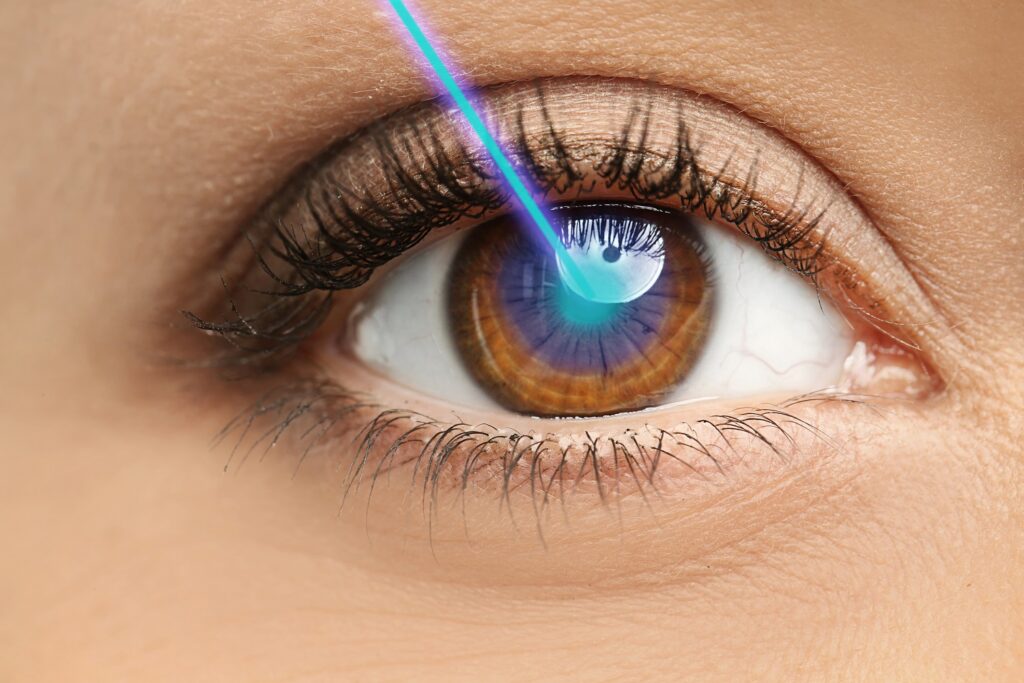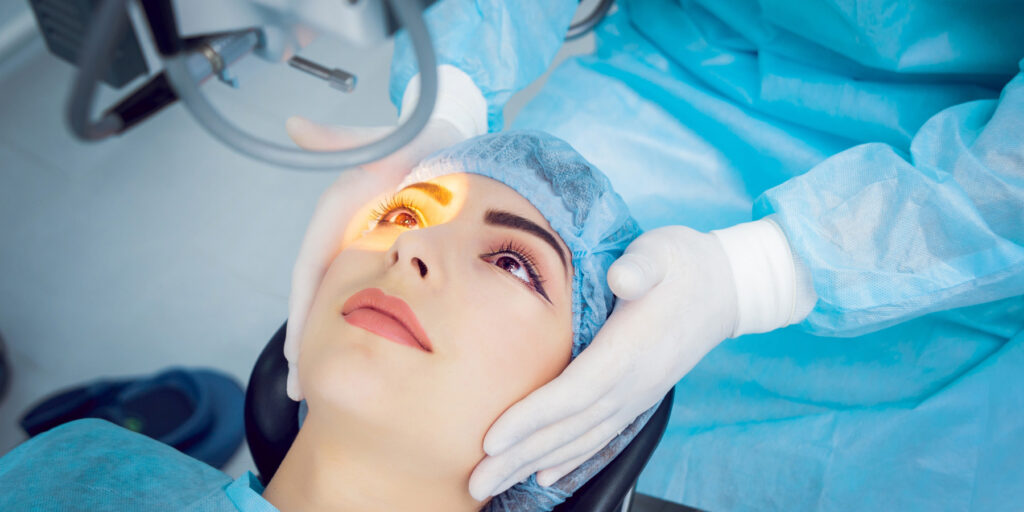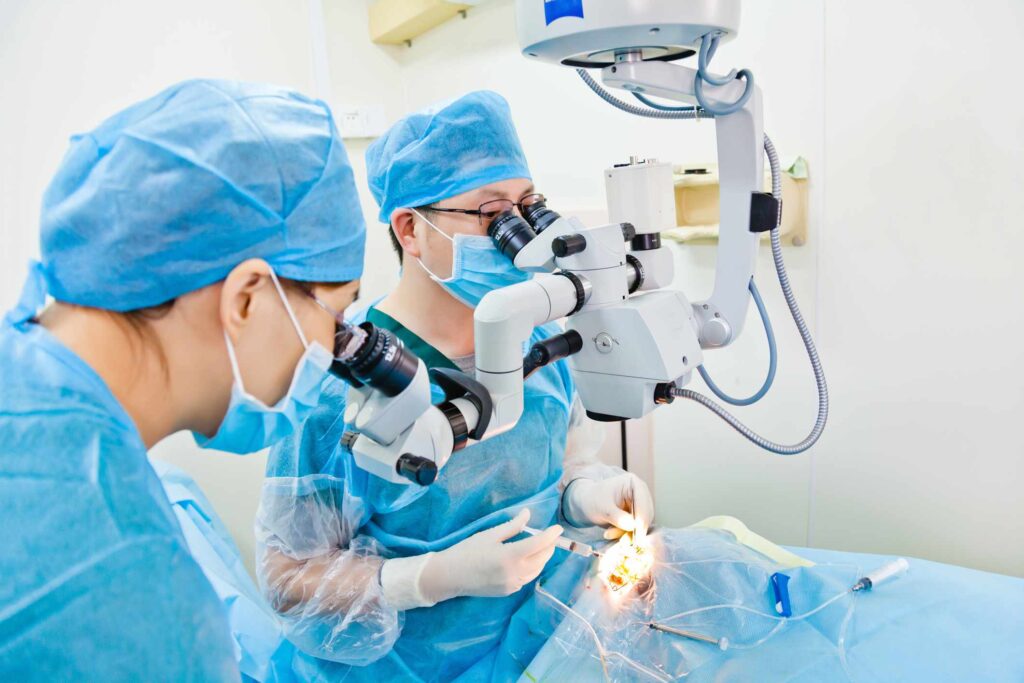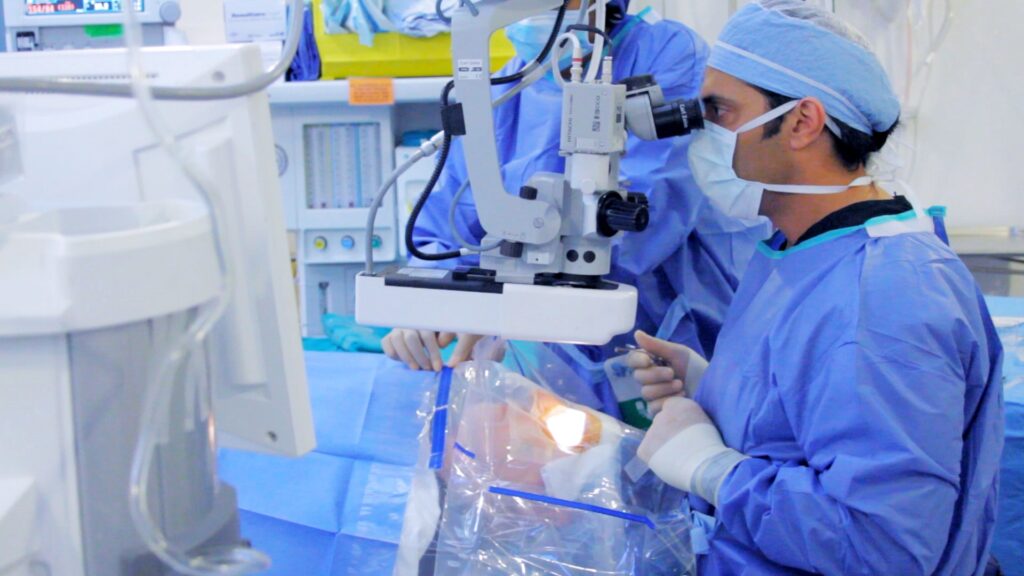Laser-Assisted in Situ Keratomileusis is referred to by the abbreviation LASIK. This surgical procedure, also known as laser eye surgery, aims to precisely restore eyesight while enabling a speedy recovery. By cutting slits into the cornea and using a laser to shape the eye lens, other laser treatments and refractive laser eye surgery procedures alter the cornea’s structure. The following are some alternatives to traditional refractive laser eye surgery and laser therapies:
Radial keratotomy, photorefractive keratectomy, and enhancement surgery are some examples of advanced surface ablation.
On the other hand, the corneal tissue is restructured during the laser eye surgery procedure. A small amount of corneal tissue must be removed. A circular flap is opened in the middle and then replaced after the cornea has been reshaped. By correcting the eye lens’s focusing power, this procedure will enable clear vision.
Over half of the world’s population will be myopic by 2050. Our reliance on eyeglasses and contact lenses is growing. Laser therapy is another method for reversing myopia. To effectively treat refractive conditions like myopia, hyperopia, or astigmatism, your ophthalmologist may suggest LASIK eye surgery. What precisely is laser eye surgery then? For the treatment of nearsightedness, farsightedness, and other flaws in the cornea or lens of the eye, laser eye surgery is a common procedure. Click here to learn about the features and benefits of the resmed airmini, a travel-friendly CPAP machine.

What benefits might laser eye surgery offer?
- There is no discomfort at all.
- Surgery on both eyes may be completed in less than a quarter of an hour, and stabilization of vision occurs 24 hours after surgery.
- No stitches or bandages are needed after surgery.
- Vision may be corrected if it varies with age years later.
How should I get ready for a laser eye surgery?
- It will be advised to stop using contact lenses two to three weeks before surgery for those who use them.
- The patient’s eyes and medical history are examined by the ophthalmologist.
- Examinations are conducted on corneal thickness, pupil dilation, ocular pressure, corneal mapping, and corneal mapping.
- In order to reduce any potential pain, numbing eye drops are provided to the patient’s eye before to operation.
- In certain cases, medications are utilized to help patients relax while receiving treatment.
- Patients are advised to eat just a light meal the day before surgery. Learn more about preparing for surgery.
What might I anticipate after surgery?
You can have brief stinging and burning in your eyes just after surgery. While the majority of patients immediately recover after surgery with good vision, a small percentage may endure brief vision problems. Up until your eye is completely healed, refrain from driving or touching your eyes.
What risks are there?
Except in cases when the doctor makes a mistake while creating the flap, blindness is very uncommon. A thin cornea after laser eye surgery runs the risk of making the patient blind. Other irritants including brightness, halos, shifting vision, and dry eyes might sometimes happen.

Who cannot get laser eye surgery?
patients with variable refractive powers who are under or in their early twenties. patients who may be going through hormonal changes brought on by diseases like diabetes. those who have fluctuating eyesight as a result of medication. mothers who are breastfeeding or pregnant. those who regularly participate in close-contact sports like wrestling and martial arts.
A patient should never consent to surgery under the influence of another person. Before making a decision, speak with an eye health expert about the dangers of laser eye surgery.
Laser eye surgery is a fairly straightforward and painless medical technique. Using a cold pulse laser, our skilled surgeons may permanently improve your eyesight by removing tissue with a diameter thinner than a human hair.
However, since your eyes are such sensitive and priceless organs, you must take every precaution to speed their recovery after treatment. You may increase the likelihood that your eyes will heal quickly and avoid some of the unusual problems that may arise by adhering to the tips below.
Recuperate
In the hours after surgery, you must completely rest your eyes and body. You’ll be led to a rest room after your treatment. You must make arrangements for a ride home since driving is not permitted just after laser eye surgery.
Even though the cornea will start to heal after laser eye surgery in a matter of hours, you should still proceed with care.
Take your time before getting back to work.
The first few days after laser eye surgery should be used to give your eyes as much rest as possible. Avoiding activities that put too much strain on your eyes is one way to do this. Avoid spending too much time on screens during the first few days, as well as engaging in activities like reading and playing video games.
Even while some people go back to work the next day, it’s always best to take some time off, particularly if your profession needs you to utilize your eyes. Since every individual is different, your surgeon can help you decide what the best course of action is.
Prevent rubbing
It’s difficult to resist the urge to touch your blurry eyes, especially if they feel dry or tingling. But you have to resist the want to itch and scratch.
It’s possible that continued touch may undo some of the healing after surgery, causing a setback that calls for more treatment. To treat the dryness, your surgeon will prescribe eye drugs; the rest is up to you.

Wear sunglasses.
In the days and weeks after surgery, your eyes will become more sensitive, so you need to protect them as much as you can. Wear sunglasses with proper UV protection if you’re heading outdoors so that less light gets into your eyes. This is particularly important on sunny days.
Do not drive
Since driving is forbidden the day of laser eye surgery, you will need to arrange for a friend or family member to drive you home. This is due to the fact that you will have received tranquil eye drops and maybe a little sedative to help you rest throughout the treatment.
Your surgeon will decide whether you are fit to drive when you return to the hospital for a follow-up visit a few days after surgery. You might also ask to have your driver’s license modified to reflect the fact that you no longer need corrective lenses.
Baths, not showers
It has been said that there are two types of individuals in the world: those who bathe and those who take showers. You should firmly establish oneself as a bath person in the weeks after treatment. This is due to the fact that you must make an effort to stop water from entering your eyes, which might cause issues with more modern treatments.

